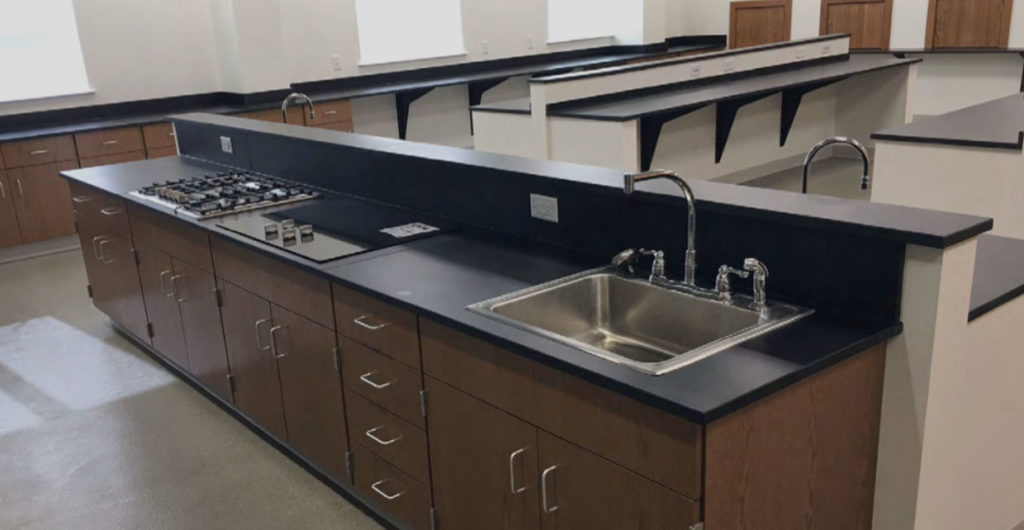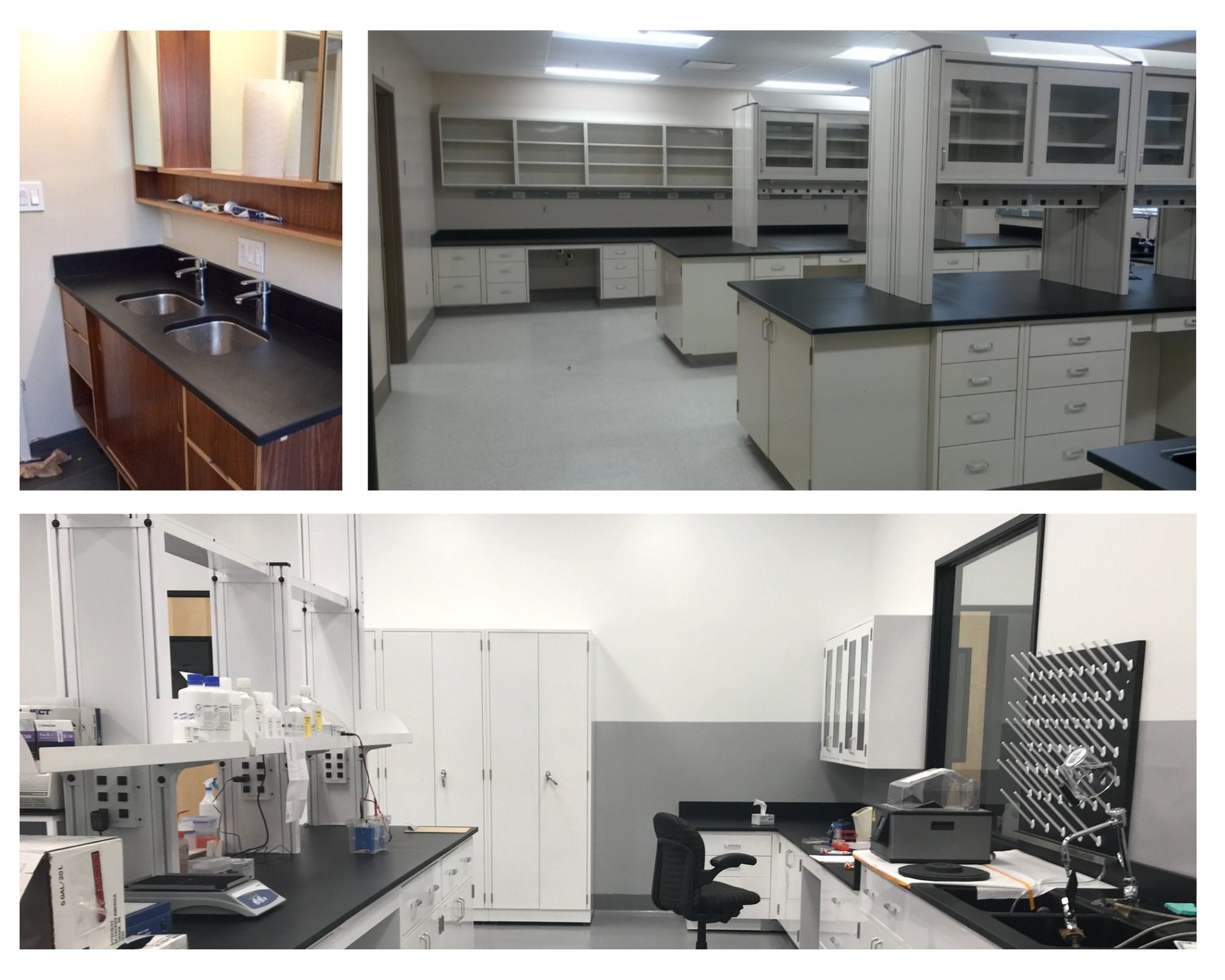When it comes to outfitting your laboratory, you want the best in terms of both functionality and appearance. Many unique surfaces available today allow for a beautiful finish that is designed to last for years to come with repetitive use. If you’re considering new countertops, you may be interested in learning about the differences between epoxy and phenolic resin surfaces. The information below discusses the answers to some FAQs on this topic, including information about proper epoxy resin countertop care, wear and tear of the epoxy resin countertop coating, and where to find appropriate epoxy resin countertop manufacturers.
How to Take Care of Your Epoxy Resin Countertop
Epoxy resin countertop care is of great importance to those who’ve recently invested in this type of surface for their laboratory. You’ll be happy to know that epoxy resin is incredibly durable and easy to care for. During the curing process for this type of material, a unique chemical reaction occurs that creates a solid and uniform work surface. This surface is heat, chemical, and impact resistant.
During the curing process for this type of material, a unique chemical reaction occurs that creates a solid and uniform work surface. This surface is heat, chemical, and impact resistant.
This makes epoxy resin a great choice for lab settings where a lot of different chemicals will be used. Epoxy resin countertop care is as simple as wiping the surfaces with a clean cloth after each use to remove any debris, moisture, or chemical exposure. Many laboratory owners select a black epoxy resin countertop to reduce the appearance of stains and add to the visual appeal of the setting.
Is an Additional Coating of Epoxy Required After a Few Years?
An epoxy resin countertop coating is designed to be a long-term finish, even in settings that receive a lot of exposure to harsh elements. This is just one reason this material is commonly used in laboratories. The epoxy resin countertop coating does not need to be sealed and will not need additional coats once proper curing of the surface has taken place. If abnormal wear or severe pitting were ever to occur with specific chemicals, epoxy resin countertop refinishing could be done to make the surface like new once again.
Which Manufacturer Is the Best Option for a Budget?
Operating on a budget can be difficult when you’re attempting to create a lab setting that is both attractive and highly functional. A variety of epoxy resin countertop manufacturers create similar types of products that serve comparable purposes. It can be helpful to comparison shop online in order to find the ideal epoxy resin countertop manufacturers for your needs. There are a wide variety of size, thickness, and color options that exist with epoxy resin as well. A black epoxy resin countertop remains among the more popular of color choices due to its visual appeal and ability to resist staining.
Are Phenolic Resin Countertops More Expensive Than Epoxy Resin Countertops?
It’s important to consider the phenolic resin countertops price when drawing a comparison between epoxy and phenolic resin surfaces. Phenolic resin offers many of the same benefits as epoxy resin with a major difference in the price point. The phenolic resin countertops price is considerably lower than that of epoxy resin, while still providing a durable surface that is highly resistant to most chemicals. This can be useful information for those working on a stricter budget.
We understand the importance you place on creating an ideal laboratory setting that can withstand the daily demands placed upon while still looking attractive to the eye in the process. If you need assistance in choosing the right countertop surface material for your needs, we are here to answer any questions you may have. Contact us for assistance if you’re searching for the best surface for your lab setting or need help with epoxy resin countertop refinishing. We can help customize the countertop designs that best fit your needs in a professional and timely fashion.


